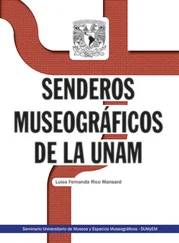Fanny Fern - Rose Clark
Здесь есть возможность читать онлайн «Fanny Fern - Rose Clark» — ознакомительный отрывок электронной книги совершенно бесплатно, а после прочтения отрывка купить полную версию. В некоторых случаях можно слушать аудио, скачать через торрент в формате fb2 и присутствует краткое содержание. Жанр: foreign_antique, foreign_prose, foreign_sf, на английском языке. Описание произведения, (предисловие) а так же отзывы посетителей доступны на портале библиотеки ЛибКат.
- Название:Rose Clark
- Автор:
- Жанр:
- Год:неизвестен
- ISBN:нет данных
- Рейтинг книги:5 / 5. Голосов: 1
-
Избранное:Добавить в избранное
- Отзывы:
-
Ваша оценка:
- 100
- 1
- 2
- 3
- 4
- 5
Rose Clark: краткое содержание, описание и аннотация
Предлагаем к чтению аннотацию, описание, краткое содержание или предисловие (зависит от того, что написал сам автор книги «Rose Clark»). Если вы не нашли необходимую информацию о книге — напишите в комментариях, мы постараемся отыскать её.
Rose Clark — читать онлайн ознакомительный отрывок
Ниже представлен текст книги, разбитый по страницам. Система сохранения места последней прочитанной страницы, позволяет с удобством читать онлайн бесплатно книгу «Rose Clark», без необходимости каждый раз заново искать на чём Вы остановились. Поставьте закладку, и сможете в любой момент перейти на страницу, на которой закончили чтение.
Интервал:
Закладка:
"Lawyer Briggs and Squire Beadle are my wife's relatives, you know, Miss Dolly."
"Oh, I wasn't complaining, at all," said Dolly; "they are eddicated people, it isn't at all strange; how's your folks?"
"Very well, I thank you; the baby is getting through his teeth bravely."
"I saw Mrs. Clifton go into Mrs. Messenger's the other day," said Dolly. "I see she has her favorites in the parish."
"Mrs. Messenger's little boy was taken in a fit," said Mr. Clifton, "and they sent over in great haste for my wife."
"Ah," said Dolly, "well, I didn't blame her, of course not; I wouldn't have you think so. Mrs. Messenger is considered very genteel here in the village; Mrs. Messenger and I are two very different persons."
"I see you brought me a new parishioner last Sunday," said Mr. Clifton, glad to change the conversation.
"Yes; she is a poor child whom I took out of pity to bring up; her mother is dead, and so I offered her a home."
"That's right," said Mr. Clifton, who had his own views about Dolly's motives. "I hope she will attend the Sabbath-school; Mrs. Clifton, I know, would like her to be in her class."
Dolly's countenance fell. "Well, I don't know about that, though I'm obleeged to Mrs. Clifton. I don't think Rose would be willing to go."
"She might be shy at first," said the minister, "but my wife has quite a gift at drawing out children's hearts. I think little Rose would soon love her."
"I don't think she will be able to go," said Dolly, coldly; "but I'll think of it."
"Do," replied Mr. Clifton, "and perhaps you would allow her sometimes to run over and see the baby and the garden. Children are sociable little creatures, you know. Is she fond of flowers?"
"I guess not," said Dolly. "I am sure I never could see any use in them, except to make artificial ones by, to trim bonnets."
Mr. Clifton smiled, in spite of himself, at this professional view of the subject. "Well, the baby then," he added; "it is just beginning to be interesting. I think she would like the baby."
"She don't seem to have much inclination to go about," answered Dolly, "and it is not best to put her up to it; home is the best place for children."
Ay, home , thought Mr. Clifton, as Rose's sweet sad eyes and pale face passed before him.
"Well, good morning, Miss Dolly; perhaps, after all, you will change your mind about the little girl."
"Good morning, Mr. Clifton," and Dolly bobbed a succession of little courtesys, and avoided answering his last remark. "Good morning, Mr. Clifton; thank you even for a short visit, but I don't complain. It is a poor place, after all, to invite a clergyman into."
"I think I see Rose going to Sabbath-school," said Dolly, as she folded up her finery, put it away, rolled up her sleeves and went back to the wash-tub; "I think I see her going off to Sunday-school and me doing up the work; visiting at the minister's house too; 'baby and flowers,' and all that: she'd be so set up in a fortnight that there would be no getting along with her: all sorts of notions put in her head, instead of thinking herself well off here as she is, with her head under shelter, ten to one she would imagine she was terribly abused. No – Rose don't make any acquaintances if I can help it, and as to Sunday-school, there's the Bible, she might as well study it in one place as another; there's something behind all this; I verily believe that child is going to bewitch folks, just as her mother did before her; the amount of it is, they took a fancy to her, Sunday, in meetin'; Rose is just like her mother exactly; she always looked just so innocent, as if she didn't know that she was – (Dolly couldn't say pretty even to herself, so she added – artful). No, that child shan't go any where, nor see any body, nor do any thing, but work for me;" and Dolly gave the towel she was wringing out, as vigorous a twist as if it had been Rose's neck.
The kind-hearted clergyman and his wife made many after attempts to show Rose some little kindness, but Dolly was always sure to out-general them, and fearing at last that the situation of the child might be made still more irksome by their persistence, they reluctantly confined themselves to sympathetic glances, and nods, when they met her; and this was much to poor Rose, for Dolly's voice grew each day harsher and colder, and Rose's future, hour by hour, looked more dark and rayless.
CHAPTER XIII
And now the minister and his gentle wife had their own sorrow to bear.
The baby was dead.
There are those to whom that phrase conveys but little meaning; there are others whose every heart-string thrills to it. "The baby" may not be pretty to any, save those who gave it being. Its first smile, its first word, its first tottering step, are trifles all to the busy world without; but ah, not in the little home circle: not to him who contending all day long with the jostling world of trade, sickened and disgusted with its trickeries and overreaching, selfishness, and duplicity, weary with the clamorous din of traffic, crosses at length his own peaceful threshhold, and sitting down by that little cradle, bends a brow seamed with care, over the little sleeper, with heaven's own smile upon its lip, heaven's own purity on its baby brow.
Not to her ; to whom its faintest smile were reward enough for mortal pangs and throes; its faintest wail of pain loud enough to drown the united call of hunger, thirst, and weariness.
Not to those who, folding it to their united hearts, say — Our baby .
Is their love the less when disease lays its withering finger on the roses of its cheek and lip? Can they spare "the baby" even though other children cluster round the hearth? And when death's shadow falls, can they forget the night-watch nestling of that little velvet cheek? the imploring look of that fading, upturned eye? Can such chords be rudely snapped without a jarring discord? No, let them weep; Jesus wept.
Inexpressibly dreadful is the touch of careless fingers upon the loved dead; the careless robing and unrobing of limbs in life so dearly cherished, so delicately draped.
Inexpressibly beautiful are the services weeping love jealously renders to the departed; bearing on its own shoulders to its last resting-place the coffin and the pall, lowering it carefully, reverently, as if the pulseless heart within would be pained by a stranger touch.
It was Mary Clifton's own fingers which shrouded the baby; it was the father's own hands which placed it in the coffin, it was in their own arms by the light of the quiet stars, it was borne to its garden grave.
"Ridikilis!" exclaimed Dolly, "as if nobody was good enough to touch that child; minister's folks, too, having sich stuck-up notions; as if the child knew who carried it, as if the sexton didn't understand his business, as if the whole village oughtn't to have seen 'em bury it, if they wanted to. Polly Smith was up in a tree, and saw the whole of it. She said she was determined to. She said they cried like every thing; now that just shows how much they believe what they preach about 'heaven's being the best place;' if that is so, they'd naterally be glad the young one had gone there; pooh, it is all stuff – they don't believe it no more nor I do; any how, I shall make the most of this world, and then, if there's nothing better in t' other, I shall have at least gained something.
"It was perfectly ridikilis, there not being a funeral time; I should have sold yards and yards of black ribbon, for the parish to wear; but minister's folks never think of any body but themselves. I've found that out."
Mary Clifton sits at her nursery-window; the empty cradle is by her side, with its snowy pillow and coverlid, the baby's rattle lies on the mantle, and its little cloak and silken hood hang just in sight within the closet.
Читать дальшеИнтервал:
Закладка:
Похожие книги на «Rose Clark»
Представляем Вашему вниманию похожие книги на «Rose Clark» списком для выбора. Мы отобрали схожую по названию и смыслу литературу в надежде предоставить читателям больше вариантов отыскать новые, интересные, ещё непрочитанные произведения.
Обсуждение, отзывы о книге «Rose Clark» и просто собственные мнения читателей. Оставьте ваши комментарии, напишите, что Вы думаете о произведении, его смысле или главных героях. Укажите что конкретно понравилось, а что нет, и почему Вы так считаете.












